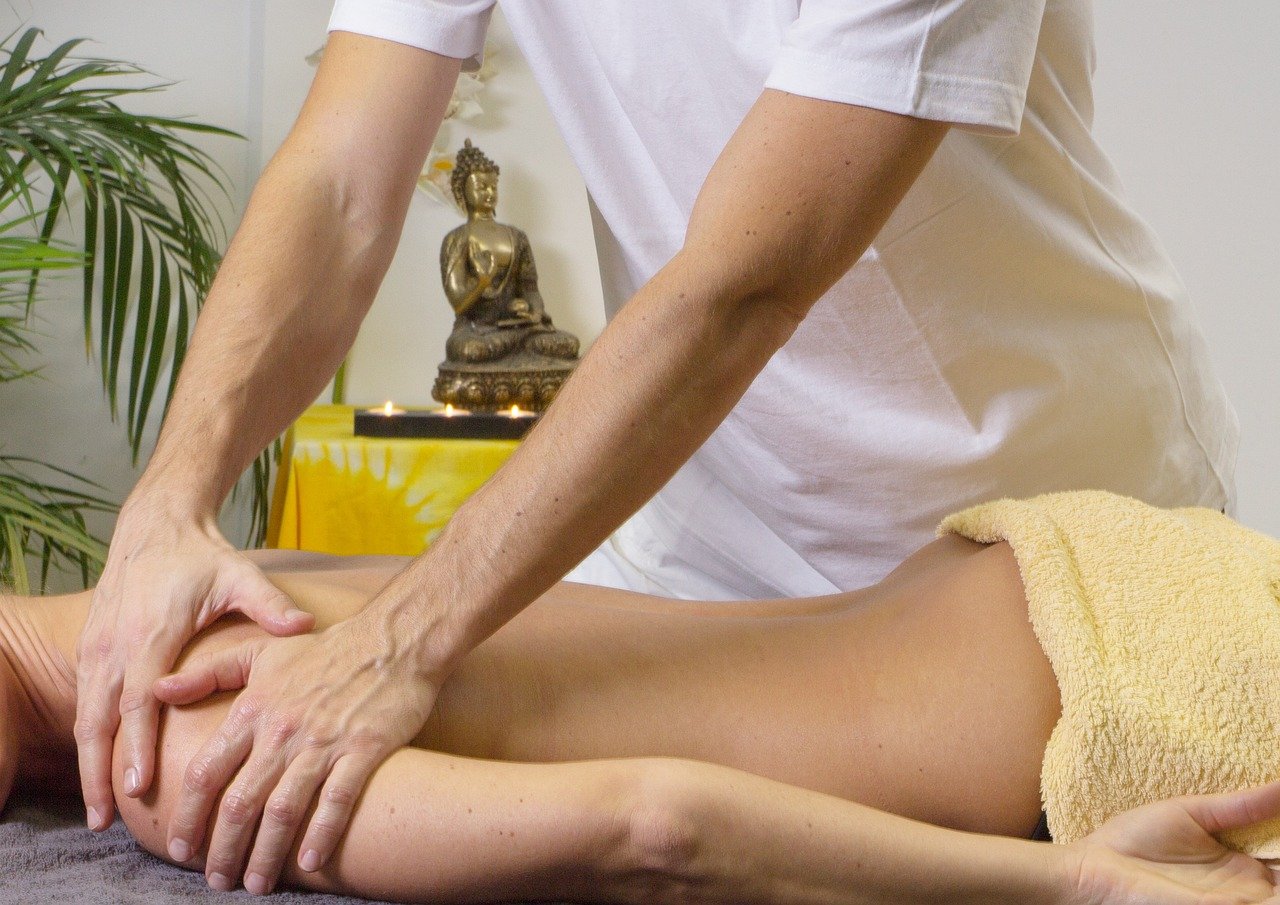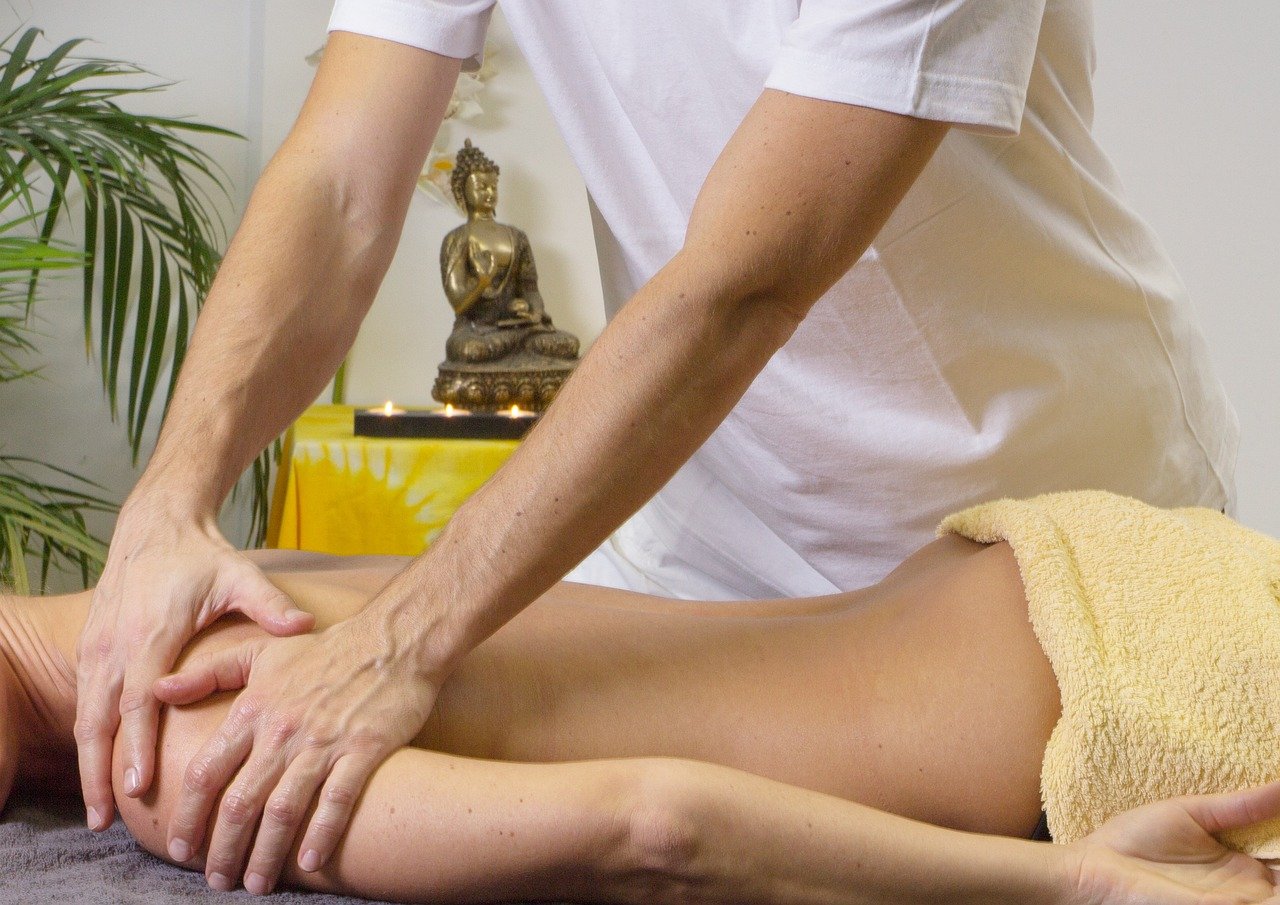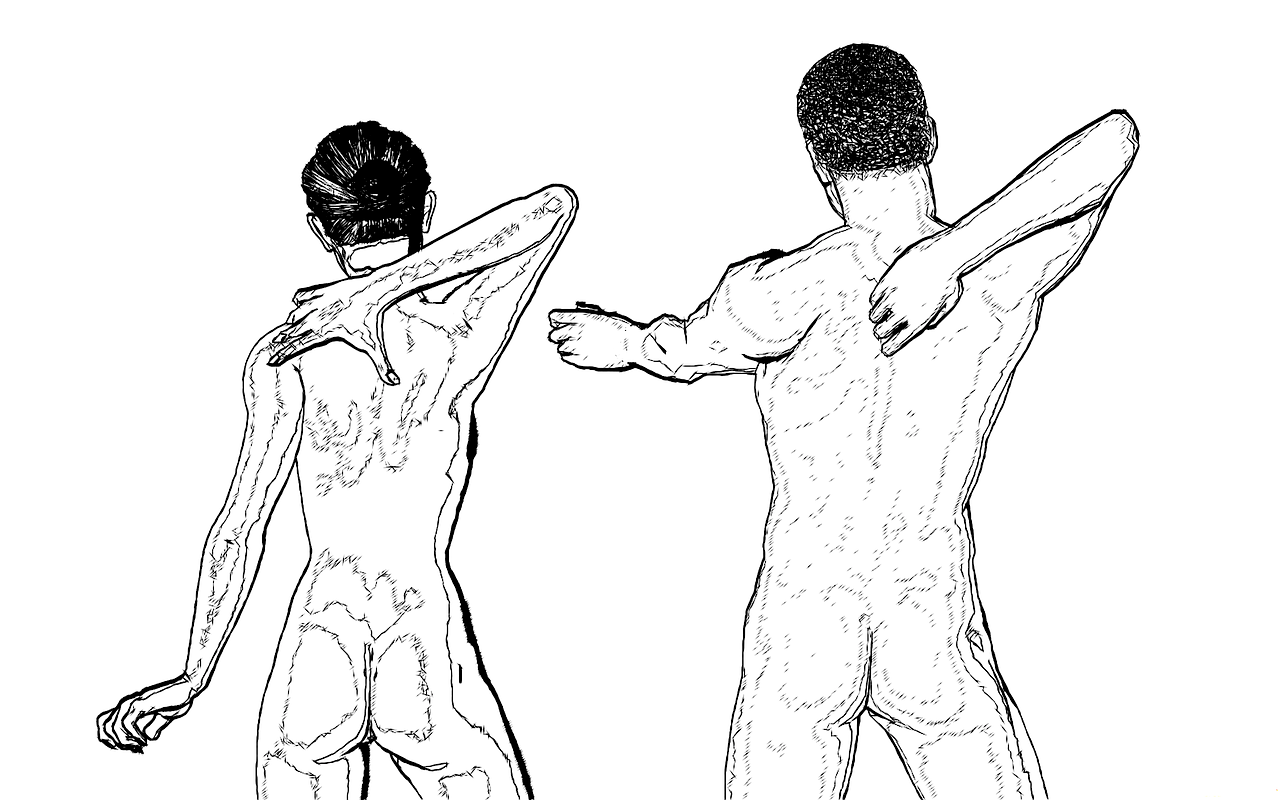
Hey there! Have you ever wondered why your shoulder starts hurting when you lie on it? It can be quite uncomfortable and frustrating, especially when you’re trying to get a good night’s sleep. In this article, we’ll explore the possible reasons behind this mysterious shoulder pain and provide some tips to help alleviate the discomfort. So, let’s get started and uncover the secrets of why your shoulder might be aching when you lie on it!

Anatomy of the Shoulder
The shoulder is a complex joint that allows for a wide range of movement. It consists of several bones and joints, as well as numerous muscles and tendons. Understanding the anatomy of the shoulder is essential in identifying the causes of shoulder pain.
Bones and Joints
The shoulder joint is formed by the articulation of three bones: the humerus, scapula, and clavicle. The head of the humerus fits into a shallow socket in the scapula called the glenoid cavity. This ball-and-socket joint allows for movements like rotation, flexion, and extension.
The complex network of joints in the shoulder includes the acromioclavicular joint (AC joint) and the sternoclavicular joint. These joints contribute to the stability and mobility of the shoulder.
Muscles and Tendons
The muscles and tendons surrounding the shoulder joint play a crucial role in its functioning. The rotator cuff, consisting of four muscles (supraspinatus, infraspinatus, teres minor, and subscapularis), helps in rotating and stabilizing the shoulder. These muscles are connected to the bones by tendons, which are tough, fibrous tissues.
Other muscles, such as the deltoid, biceps, and trapezius, also contribute to the movements and stability of the shoulder. Understanding these structures is essential in identifying the common causes of shoulder pain.
Common Causes of Shoulder Pain
Shoulder pain can have various causes, and understanding them can help in finding the appropriate treatment. Some of the most common causes of shoulder pain include:
Rotator Cuff Injury
The rotator cuff is susceptible to injury, especially with repetitive overhead motions or sudden trauma. Rotator cuff injuries often result in pain, weakness, and limited range of motion in the shoulder.
Shoulder Impingement
Shoulder impingement occurs when the tendons of the rotator cuff become compressed and irritated between the bones of the shoulder. This can lead to pain, especially during overhead activities.
Bursitis
Bursitis is the inflammation of the bursae, which are small fluid-filled sacs that help reduce friction between tendons and bones. Shoulder bursitis can cause pain and swelling, particularly when performing repetitive motions.
Frozen Shoulder
Also known as adhesive capsulitis, frozen shoulder is a condition characterized by stiffness and pain in the shoulder joint. It typically progresses through three stages, limiting shoulder movement and causing discomfort.
Arthritis
Arthritis can affect any joint in the body, including the shoulder joint. Osteoarthritis, rheumatoid arthritis, and other forms of arthritis can lead to pain, stiffness, and deterioration of the shoulder joint.

Shoulder Pain and Sleeping Position
Many people experience shoulder pain when lying on it, and this can negatively impact sleep quality. Several factors contribute to shoulder pain in specific sleeping positions.
Pressure on the Shoulder
When lying on your side, the weight of your body puts pressure on the shoulder joint. This pressure can strain the muscles and tendons, leading to pain and discomfort.
Poor Sleeping Posture
Maintaining an incorrect sleeping posture can exacerbate shoulder pain. The position of the shoulder joint and the alignment of the spine are crucial in preventing unnecessary strain on the shoulder.
Restricted Blood Circulation
Certain sleeping positions can restrict blood circulation, leading to pain and stiffness in the shoulder. Reduced blood flow can cause muscle cramps and increase discomfort.
Specific Conditions That Cause Shoulder Pain When Lying on It
While any underlying shoulder condition can cause pain when lying on it, certain specific conditions are commonly associated with this discomfort.
Rotator Cuff Tendinitis
Rotator cuff tendinitis, or inflammation of the tendons in the rotator cuff, can cause pain when lying on the affected shoulder. The tendons become irritated and inflamed, leading to discomfort.
Shoulder Bursitis
Bursitis in the shoulder can cause pain when lying on it. Inflammation of the bursae can result in increased pressure and discomfort, especially in certain sleeping positions.
Shoulder Impingement Syndrome
Shoulder impingement syndrome can cause pain when lying on the affected shoulder. The compression of the rotator cuff tendons between the bones of the shoulder can lead to pain and limited mobility.
Shoulder Arthritis
Arthritis in the shoulder joint can cause pain when lying on the affected side. The degeneration of the joint can lead to inflammation, swelling, and discomfort, particularly in certain positions.

Rotator Cuff Tendinitis
Rotator cuff tendinitis is a common cause of shoulder pain, especially when lying on it. Understanding its causes, symptoms, and treatment options is crucial in managing and relieving the discomfort.
Causes
Rotator cuff tendinitis can occur due to repetitive overhead movements, such as throwing, lifting, or painting. It can also result from age-related degeneration of the tendons. Additionally, poor posture, shoulder overuse, or a sudden injury can contribute to its development.
Symptoms
Common symptoms of rotator cuff tendinitis include pain, tenderness, and weakness in the affected shoulder. The pain may worsen at night or when lying on the shoulder. Limited range of motion and difficulty lifting objects overhead are also common.
Treatment
Treatment for rotator cuff tendinitis typically involves a combination of rest, ice, physical therapy exercises, and nonsteroidal anti-inflammatory drugs (NSAIDs) to reduce pain and inflammation. In severe cases, corticosteroid injections or surgical intervention may be necessary.
Shoulder Bursitis
Shoulder bursitis is another condition that can cause pain when lying on the shoulder. Understanding its causes, symptoms, and treatment options is essential in managing the discomfort.
Causes
Shoulder bursitis can develop from repeated movements that irritate or overuse the shoulder joint. Activities such as lifting, throwing, or reaching overhead can lead to inflammation and bursitis. Trauma or infection can also contribute to its development.
Symptoms
Common symptoms of shoulder bursitis include pain, swelling, and tenderness in the affected shoulder. The pain may worsen at night or when lying on the shoulder. Limited mobility and difficulty performing daily activities that involve the shoulder joint are also typical.
Treatment
Treatment for shoulder bursitis often involves rest, applying ice, and avoiding activities that exacerbate the symptoms. Physical therapy exercises to strengthen the surrounding muscles and improve flexibility may be recommended. In some cases, corticosteroid injections or aspiration of the bursa may be necessary.
Shoulder Impingement Syndrome
Shoulder impingement syndrome can cause significant pain, especially when lying on the affected shoulder. Understanding its causes, symptoms, and treatment options can help in managing the discomfort.
Causes
Shoulder impingement syndrome can occur due to repetitive overhead movements or poor shoulder mechanics. It involves the compression of the rotator cuff tendons and bursa between the acromion and humerus, leading to inflammation and pain.
Symptoms
Common symptoms of shoulder impingement syndrome include pain, weakness, and aching in the affected shoulder. The pain may worsen at night or when lying on the shoulder. Reduced range of motion and difficulty lifting objects overhead are also common.
Treatment
Treatment for shoulder impingement syndrome often involves rest, physical therapy exercises, and NSAIDs to reduce pain and inflammation. Modified daily activities and proper shoulder mechanics may be recommended to prevent further impingement. In severe cases, corticosteroid injections or surgical intervention may be necessary.
Shoulder Arthritis
Shoulder arthritis can cause significant pain when lying on the affected side. Understanding its causes, symptoms, and treatment options is crucial in managing the discomfort.
Causes
Shoulder arthritis can result from the degeneration of the joint cartilage, typically due to wear and tear or age-related factors. Rheumatoid arthritis or other autoimmune conditions can also lead to shoulder arthritis.
Symptoms
Common symptoms of shoulder arthritis include pain, stiffness, and reduced range of motion in the affected shoulder. The pain may worsen at night or when lying on the shoulder. Swelling, warmth, and a grating sensation in the joint are also possible.
Treatment
Treatment for shoulder arthritis may involve a combination of non-operative approaches such as modifying activities, physical therapy, pain medications, and joint injections to manage symptoms. In severe cases, shoulder replacement surgery may be recommended to relieve pain and restore function.
Diagnostic Methods
If you experience persistent shoulder pain, a proper diagnosis is essential for effective treatment. Medical professionals may employ various diagnostic methods to identify the underlying cause.
Physical Examination
During a physical examination, your healthcare provider will assess your shoulder’s range of motion, strength, and any areas of tenderness or swelling. They may also inquire about your medical history and perform specific tests to evaluate the integrity of the shoulder joint.
Imaging Tests
Imaging tests such as X-rays, MRIs, or ultrasound scans can provide detailed images of the shoulder joint, allowing healthcare professionals to identify any abnormalities. These tests can help confirm or rule out conditions such as rotator cuff tears, bursitis, impingement, or arthritis.
Conclusion
Shoulder pain can significantly impact your quality of life, especially when it interferes with sleep. Understanding the anatomy of the shoulder, common causes of shoulder pain, and specific conditions that cause discomfort when lying on it is crucial in finding the appropriate treatment.
Consulting with a qualified healthcare professional is recommended for an accurate diagnosis and personalized treatment plan. By addressing the underlying causes of shoulder pain and making the necessary lifestyle modifications, you can alleviate discomfort and improve your overall shoulder health. Remember to prioritize rest, proper posture, and engage in exercises or therapies recommended by your healthcare provider to maintain a healthy and pain-free shoulder joint.





